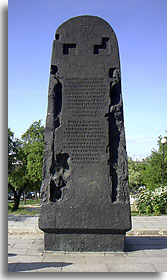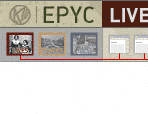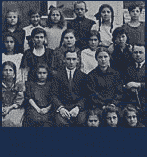



For many years after the Holocaust, a distinction was made between those "heroes" who chose to actively resist their Nazi oppressors, and those Jewish victims who allowed themselves to be passively led to their death, like "sheep to the slaughter". In recent years, scholars who study the Holocaust have come to realize that such a distinction not only tarnishes the memory of those who died at the hands of the Nazis and their collaborators, it also fails to account for the many forms of resistance exhibited by Jews under Nazi rule on the individual and daily level. These forms of resistance affirmed their desire to continue life, at all costs. The choice to resist the Nazi condemnation of Jewish life through the daily affirmation of the sanctity of life in countless acts of spiritual and cultural resistance, provides an enduring testament to the dignity of the Jewish people murdered in Europe. The courage of those who died and their affirmation of the sanctity of human life require us to preserve their memory and to honor them.
The survivors of the Holocaust, who emerged from the Nazi camps, or who managed to survive by hiding in the city or in the forests, are the moral conscience of our generation, witnesses to both the depths of human depravity and to the heights of human courage.












